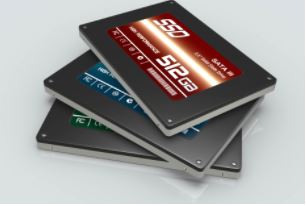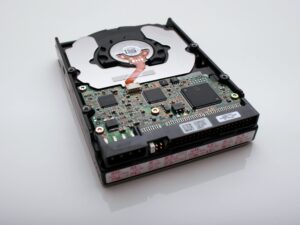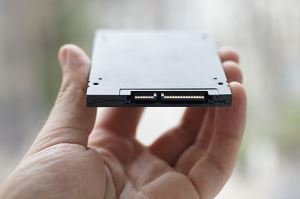
Content
- 1 512GB SSD vs 1TB HDD
- 2 What Is an SSD?
- 3 What Is an HDD?
- 4 512GB SSD vs 1TB HDD speeds
- 5 512GB SSD vs 1TB HDD Storage
- 6 512GB SSD vs 1TB HDD prices
- 7 512GB SSD vs 1TB HDD capacity
- 8 512GB SSD vs 1TB HDD durability
- 9 512 SSD vs 1TB SSD Macbook Pro
- 10 SSD vs HDD: Which Should You Choose?
- 11 So why is SSD faster than HDD?
- 12 Between SSD and HDD which one lasts longer?
- 13 512GB SSD is equal to how much HDD?
- 14 Disadvantages of SSD?
- 15 Can a laptop have both SSD and HDD?
- 16 Can I replace the HDD with an SSD?
- 17 When should I consider replacing my HDD with an SSD?
- 18 is 512GB SSD enough
- 19 is 512GB SSD enough for gaming
512GB SSD vs 1TB HDD
I’m guessing when you’re looking to buy an SSD you’re planning on working with high quality, large files. That is why I was wondering if anyone has compared the performance of a 512GB SSD with a traditional 1TB hard drive. Which investment gives me the best value for money in terms of speed, space, reliability and more?
What Is an SSD?
An SSD, which stands for Solid State Drive, is a storage device that uses NAND flash memory to store data. NAND flash memory is a type of non-volatile storage technology that does not require power to retain data.

512GB SSD
What Is an HDD?
HDD stands for hard disk drive. It refers to the hardware inside your computer that stores data. It consists of one or more platters to which data is written using a magnetic head, all inside of an air-sealed casing. The platters are paired with magnetic heads, usually arranged on a moving actuator arm, which read and write data to the platter surfaces.

1TB HDD
512GB SSD vs 1TB HDD speeds
The 512GB SSD has much faster speeds than the 1TB hard drive. This means that it will be able to transfer files much faster. Using an integrated circuit assembly as memory to store data, makes it faster than traditional hard disk drives. If you want a fast computer, it’s worth investing in an SSD.
An HDD uses magnetic storage to store and retrieve digital information using one or more rigid rapidly rotating disks coated with magnetic material. An HDD can be slower than an SSD.
512GB SSD vs 1TB HDD Storage
The two major types of storage devices HDDs and SSDs are measured differently when it comes to gigabytes (GB) or terabytes (TB). HDDs measure capacity in gigabytes 1GB = 1,000MB = one billion bytes. For example, a 1TB HDD has a total available space of 1 trillion bytes. This means that if you have a 1TB HDD with 100% free space, you can store just over 800GB of data on it (800 x 1 trillion).
SSDs on the other hand measure capacity in gibibytes (GiB) — 1GiB = 1 billion bytes = 233MB. So if you have a 512GB SSD with 100% free space left on it, that translates into about 476GB worth
512GB SSD vs 1TB HDD prices
It’s worth considering both the cost and space of each option when comparing 512GB and 1TB SSDs. While prices of SSD,s have come down a lot, you’ll still want to go with a PCIe NVME type, which is much faster than SATA III. A 512GB SSD, for instance, will generally cost about $50-$60 on average, while a 1TB SSD will cost around $90-$120.
512GB SSD vs 1TB HDD capacity
If you are using a large amount of storage space in your computer, then the 1TB hard drive will be the better choice. However, if you only use a small amount of storage space, then the 512GB SSD will be enough for you.
512GB SSD vs 1TB HDD durability
Solid-state drives (SSDs) are more durable than hard disk drives (HDDs), which means they can be dropped or knocked around without risk of damage to their internal components. That’s because SSDs don’t have any moving parts they simply store data in memory chips and rely on electronics to manage the information flow. HDDs, on the other hand, have spinning disks that must be read and written to by a read/write head.
Conclusion
On selecting between a 512 GB SSD and a 1T HDD, If you choose a 512 GB SSD over a traditional 1T HDD, you will get faster startup times. If you choose a 1T HDD instead of a 512 GB SSD, you will get an average speed with lots of storage space. So it is up to you to select what favors your preference.
512 SSD vs 1TB SSD Macbook Pro
The answer to this question depends on how much data you are planning to store in your MacBook. If you want to store a lot of data and want fast performance, then you should go for the 1TB SSD. However, if you just need some space to store your pictures and videos then 512GB is good enough.
The reason behind this difference is that SSDs have a limited amount of space available at any given time. The more space you have in your MacBook Pro, the more applications and documents can be opened simultaneously without slowing down the system. This means that if you have more than 512GB of space, then it will be better for multitasking and running multiple apps at once.
Another difference between these two hard drives is that while 1TB SSDs are faster than 512GB SSDs, they also cost more money than their smaller counterparts.
SSD vs HDD: Which Should You Choose?
The main reason why you should use an SSD over a traditional hard drive is speed. While modern HDDs are now capable of delivering decent performance in most scenarios, they still can’t match solid-state drives when it comes to overall speed.
The speed advantage isn’t just about boot times or application launch times either it also directly affects things like boot up interruptions or loading times when you’re working with large files such as videos or photos.
So why is SSD faster than HDD?
The reason that SSDs are so much quicker is that they don’t have moving parts. SSDs use flash memory to store data, which is faster than the spinning disks used in HDDs. As a result, SSDs can access data almost instantly and copy it at a much faster rate.
Between SSD and HDD which one lasts longer?
The lifespan of an SSD is usually longer than an HDD. The reason for this is that the HDD has moving parts and it can break over time. An SSD has no moving parts and therefore there’s less wear and tear on it. This means that it will last longer than a conventional hard drive before becoming unusable. In fact, some studies have shown that your SSD will last as long as 10 years if you use it properly!
512GB SSD is equal to how much HDD?
The answer depends on whether you’re comparing a 512HDD with a 512GB SSD or a 512GB hard drive with a 1TB SSD.
If you’re comparing an HDD to an SSD, the difference in capacity is negligible. An HDD will have 1,000GB (i.e., 1TB) of space and an SSD will have 960GB (i.e., 960GB) of space. The difference is less than 5%, which is not enough to make users worry about the capacity of their drive.
But if you’re comparing a 512GB hard drive to a 1TB SSD, the difference in capacity is very significant. A 512GB hard drive has 512,000MB of space and a 1TB SSD has 960,000MB of space. The difference between these two drives is 48%, which can be a deal-breaker for many people who need lots of storage capacity.
Disadvantages of SSD?
The primary disadvantage of SSD is its price. SSDs are still more expensive than traditional HDDs, and the cost gap has been narrowing over time as SSD prices have fallen and HDD prices have remained relatively steady. But while it’s true that the cost per gigabyte of flash memory has fallen dramatically in recent years, so has the cost per gigabyte of hard drives. In many cases, it’s now cheaper to buy a 1TB hard drive than it is to buy a 512GB SSD with similar performance.
Another disadvantage of SSDs is their limited write endurance. Flash memory can only be written so many times before it dies, and as you write data to an SSD over time, you’ll eventually reach this limit. If you think about how many times you change your sensitive passwords every year or two (or more often), how many times you save a file or an email attachment on your computer, or how many times you update the software on your machine, then you may begin to see why this limitation matters — especially if you use an SSD for everything on your computer!
Can a laptop have both SSD and HDD?
Yes, but it depends on the type of machine in question and whether or not you can configure it to your liking before buying.
Most laptops come with one storage drive, or that’s all they offer space for anyway. But some premium machines like gaming laptops will have multiple drive bays where you can insert both an HDD (for mass storage) and an SSD (for the operating system and frequently used files). These are often called hybrid drives since they combine the speed of an SSD with the large capacity of an HDD.
Can I replace the HDD with an SSD?
In some cases, you can replace the HDD in your computer with an SSD to improve performance significantly. However, this isn’t always possible because of different connectors and form factors. If you want to know whether your PC can be upgraded with an SSD, read on for answers about compatibility, costs and more!
When should I consider replacing my HDD with an SSD?
If your computer is feeling sluggish due to its old hard drive or if it’s running out of space for all your files, it might be time to consider upgrading to an SSD. If you use your computer primarily for surfing the web, watching videos, playing music and other light tasks that don’t require much processing power then an SSD will provide a noticeable boost in performance without costing too much money. However, if you are a gamer or use your computer for more intensive tasks like video editing or compiling code then an SSD may not be worth it as they tend to offer slower performance when compared
is 512GB SSD enough
This is the second time I’ve used this answer, and it’s become a bit of a hit-piece.
The short answer is “yes”. The long answer is:
The SSD market is over-saturated with capacity choices. I don’t know of any computer that has less than 256 GB of storage on it, but there are SSDs available up to 2 TB (1 TB for SATA drives). You can even get 4 TB SSDs in an external enclosure if you need that much storage space.
This means that most people buying new computers will have at least one 512 GB drive in them. It also means that there’s not much point in buying anything smaller than a 512 GB SSD unless you’re really tight on money.
If you want to make sure that your computer has enough storage space, I would advise getting as large an SSD as possible while still keeping within your budget. If money is no object, then get whatever size you want since they’re all basically the same price now anyway!
is 512GB SSD enough for gaming
I’m sure you can find a few games that will tax the 512GB SSD. I’ve got a 1TB SSD on my gaming desktop and it’s not enough. It’s also not fast enough to keep up with my computer’s video card.
I would recommend getting at least 1TB for your gaming rig, then adding another 512GB for your OS drive and other programs/applications so you can have more space for games.






